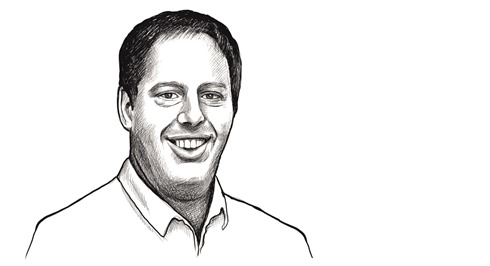It’s okay to fail

26 May 2025
Dan Davis FRSB on the hidden realities of risk taking - and why we shouldn't be worried about failing
In this issue, we have a careers-focused Q&A with newly independent researchers, asking how they got to where they are. It’s lovely to see such diversity of advice from different people. Something that inspires me often are the words of Nobel Prize winner Eric Betzig, at the end of his Nobel lecture.
In 2014 Betzig was awarded a Nobel Prize in Chemistry, along with Stefan Hell and William Moerner, for developing super-resolution microscopy, which enables us to study biology on a nanometre scale. My own lab team uses these microscopes to watch how immune cells detect signs of disease in other cells.
Many Nobel lectures end with the winner thanking all the people who helped them along the way. Betzig did the same and especially thanked his co-worker Harold Hess, but then went on to say this:
The reality of taking risks
“The last thing I would like to say… is about taking risks. People are always exhorted to take risks, and that’s fine, but you’re hearing from guys whose risks paid off. It’s not a risk unless you fail most of the time. So what I’d like to do is dedicate my talk to the unknown people out there in any walk of life who have gambled their fortunes, their careers and their reputations to take a risk, but in the end failed. I’d just like to say that they should remember it’s the struggle itself that is its own reward, and the satisfaction that you knew you gave everything you had to make the world a better place.”
Alongside science itself, writing has become a big part of what I do in my own ‘career’. Writing helps me take stock of the big picture. I have recently finished a new book, Self Defence: A Myth-Busting Guide to Immune Health. When I started writing books, though, it felt like a risk. I worried about what other scientists would think. As it turns out I needn’t have worried. Most have been incredibly supportive.
I think that’s because the value of science communication is clear, especially nowadays. We have an ecosystem of people with different backgrounds and expertise. Scientists play a role, but just as vital are professional science communicators and teachers.
In this magazine we often showcase big new discoveries and the people who got us there. But maybe it isn’t said often enough: science is hard, things are often risky at the outset, and it’s okay to fail most of the time.
Dan Davis FRSB MBE is professor of immunology at The University of Manchester and chair of The Biologist editorial board.


